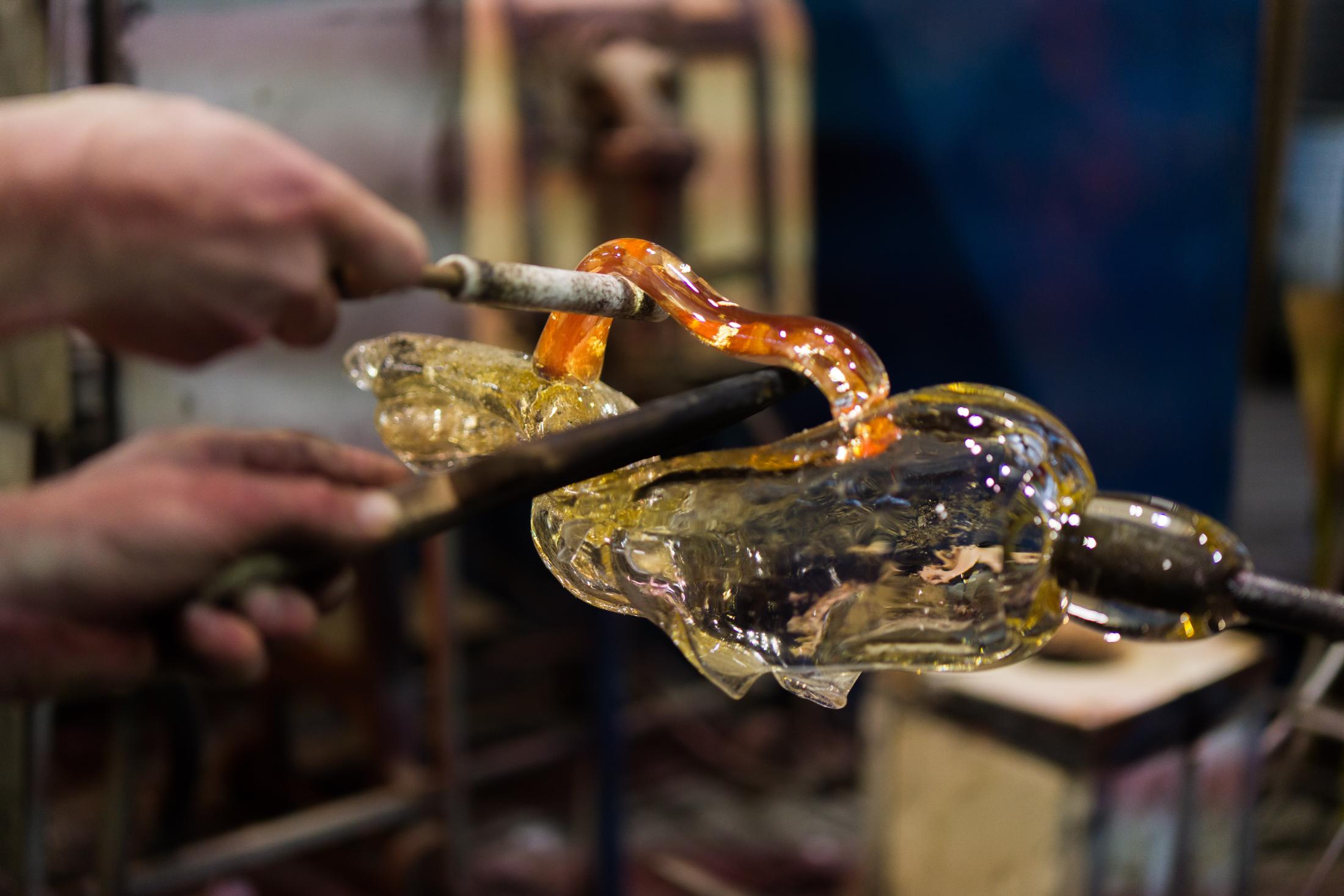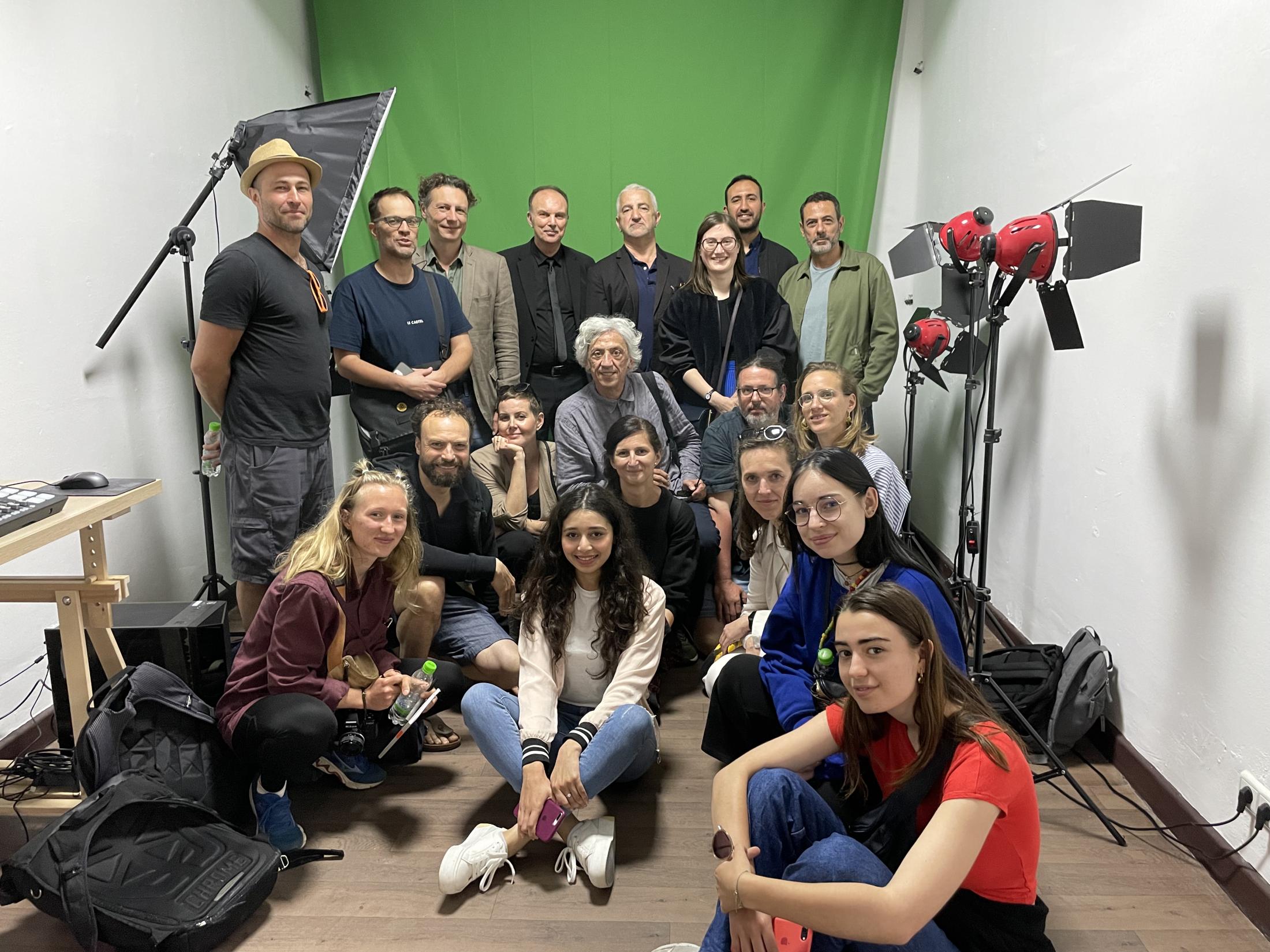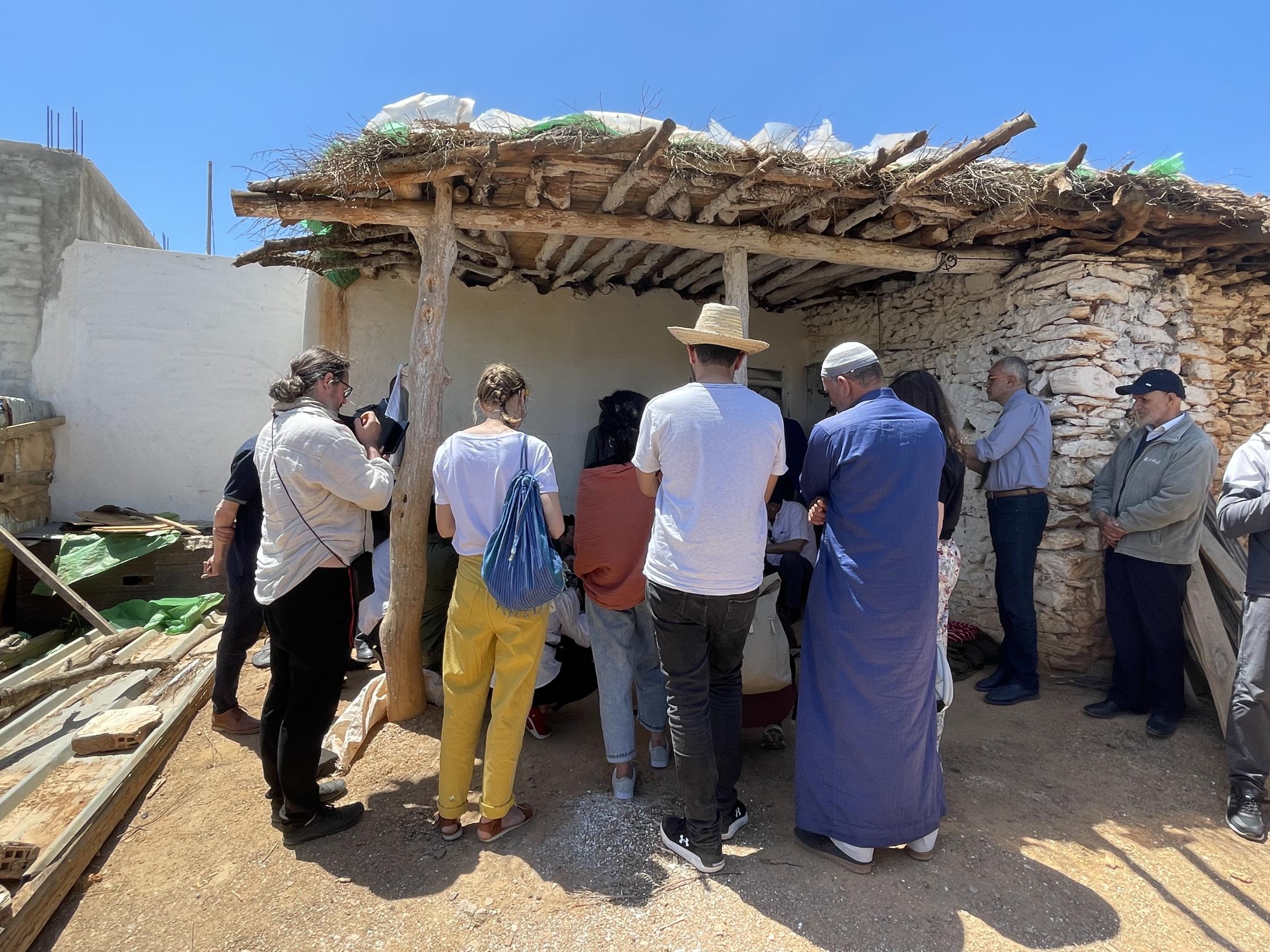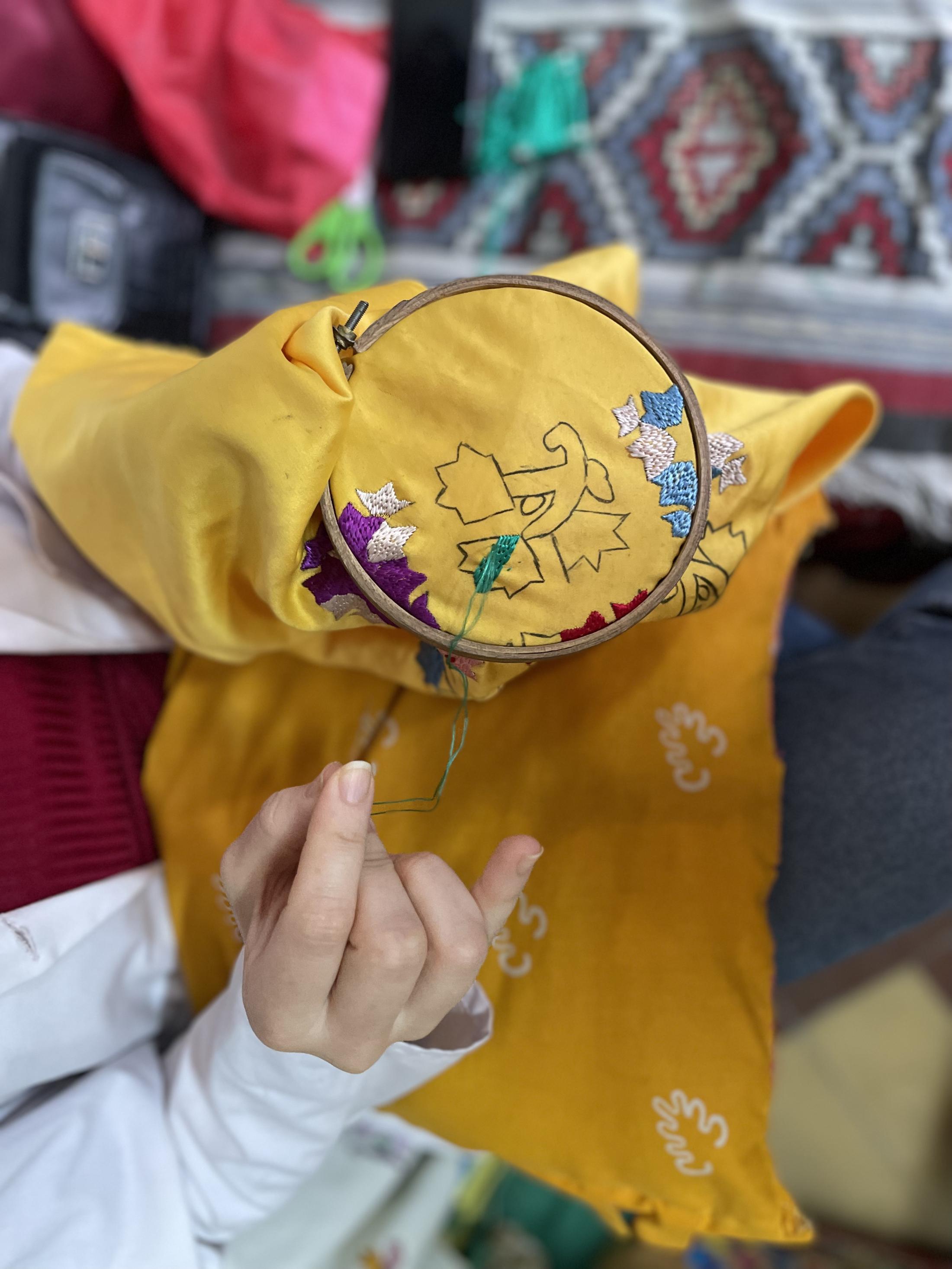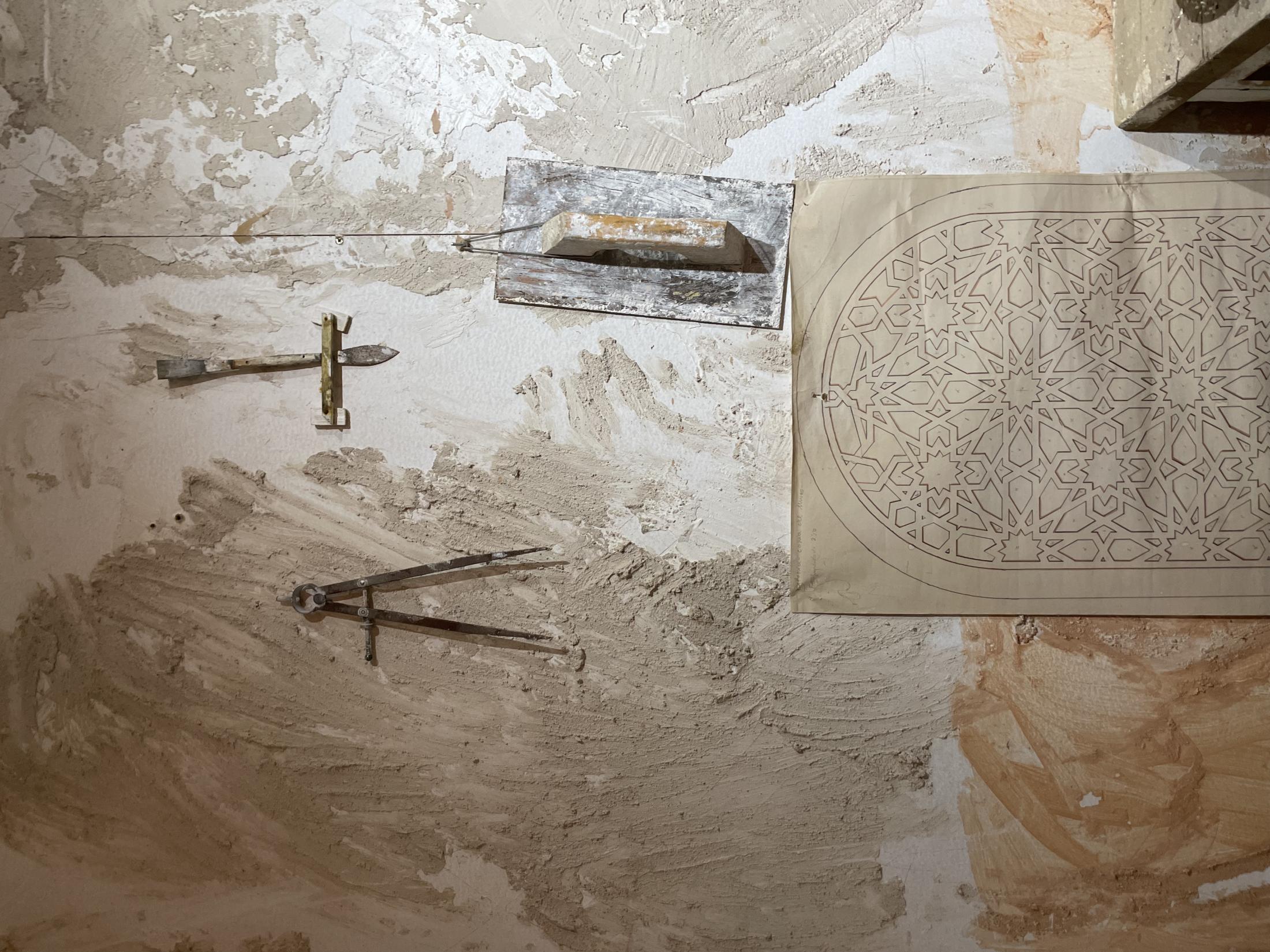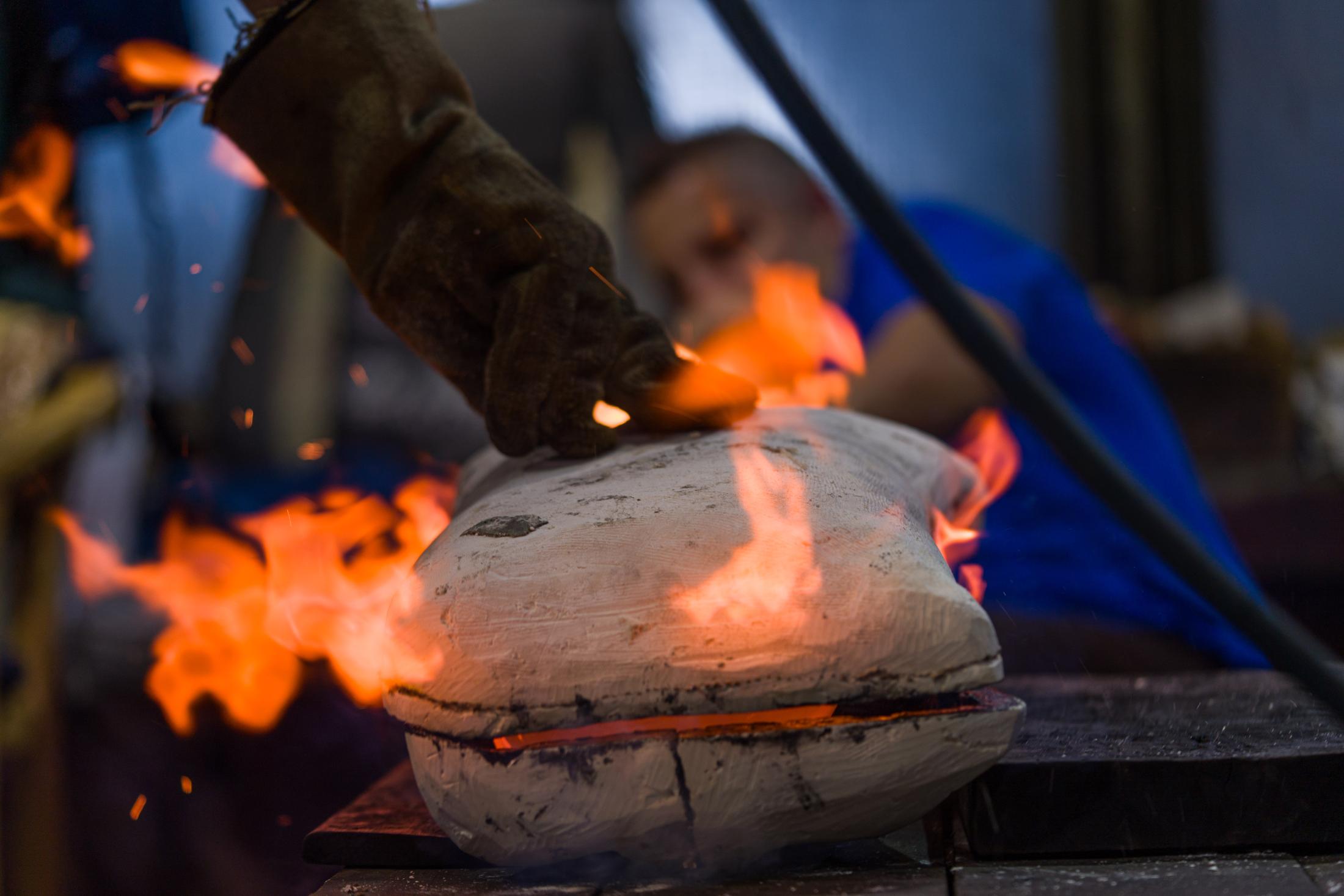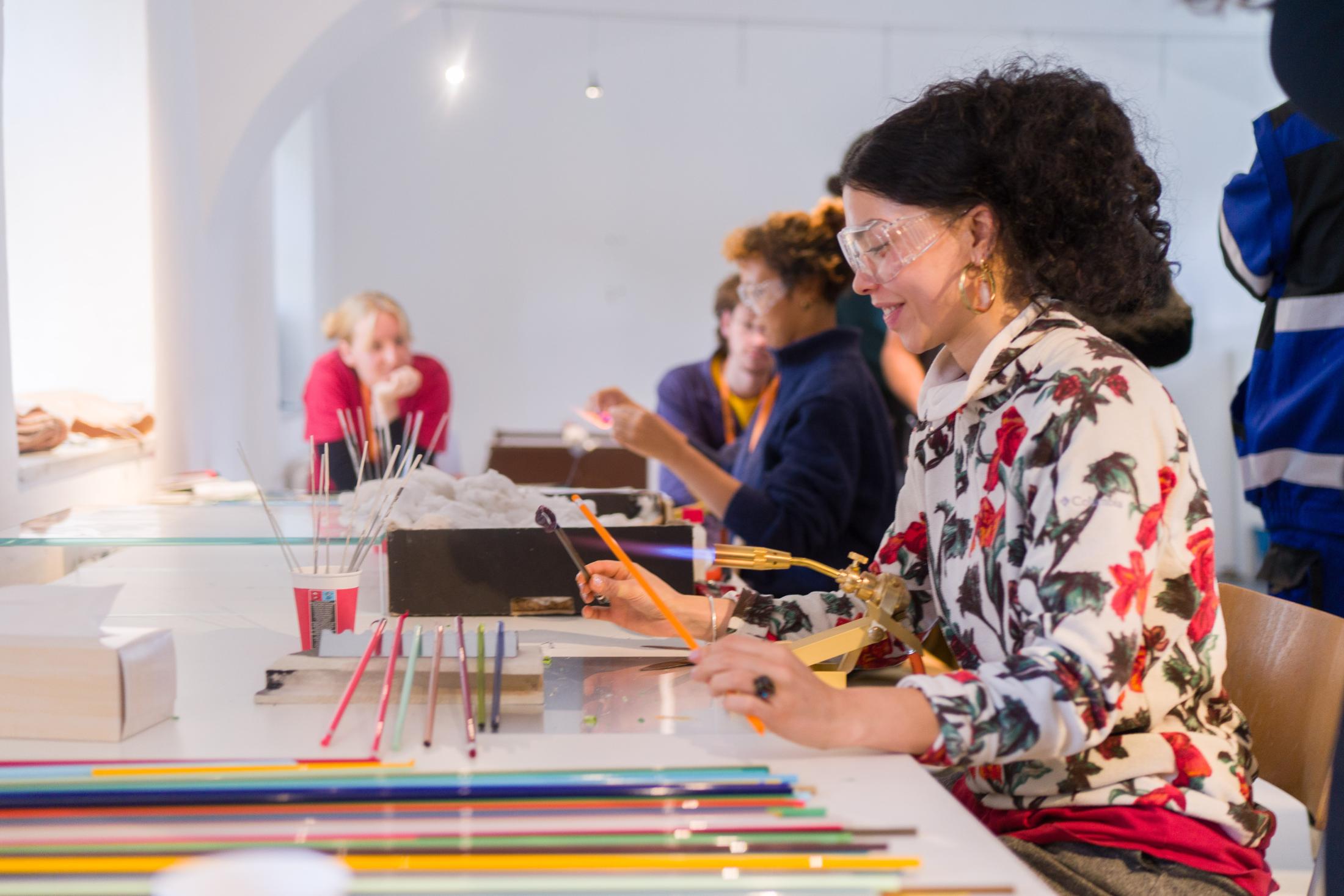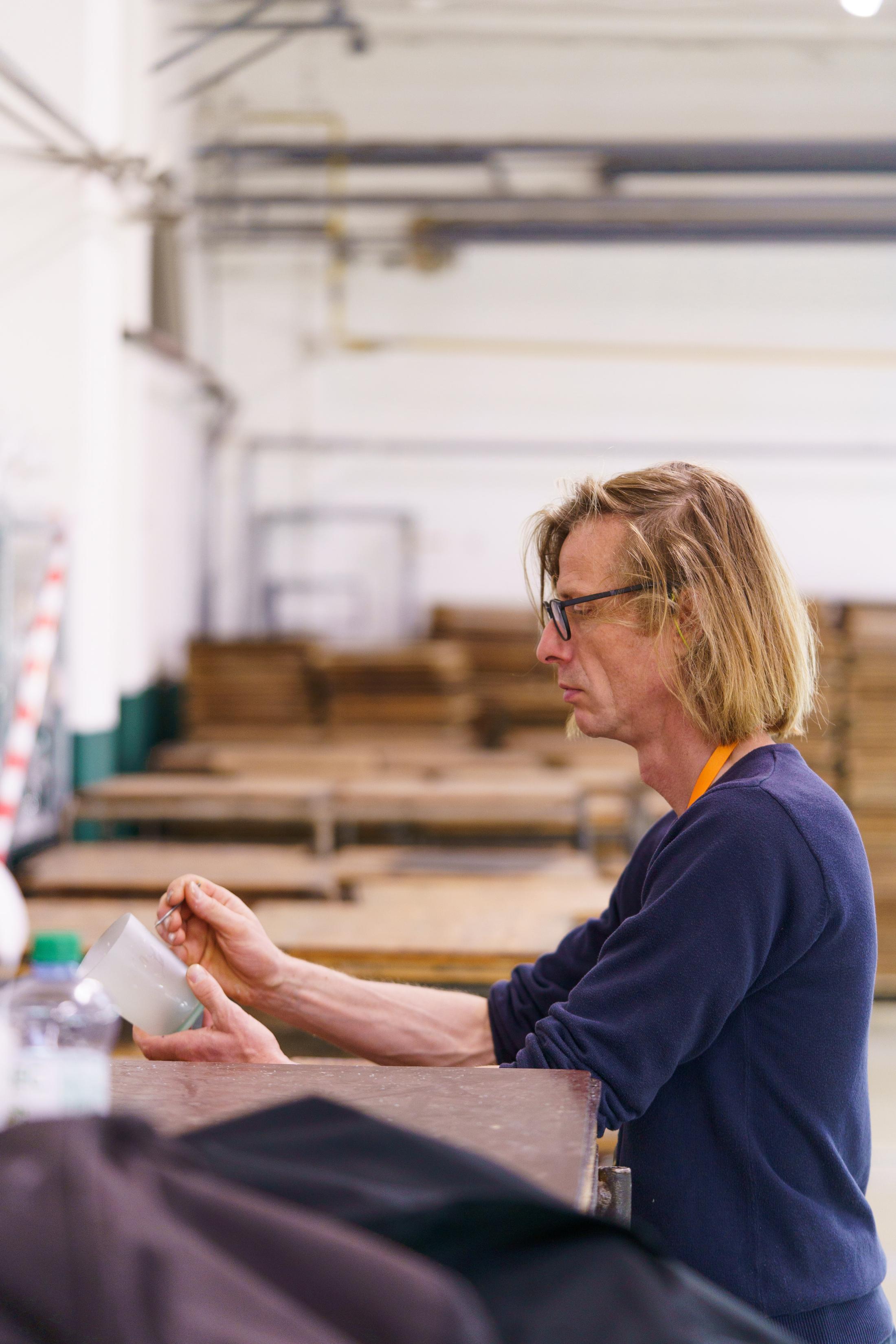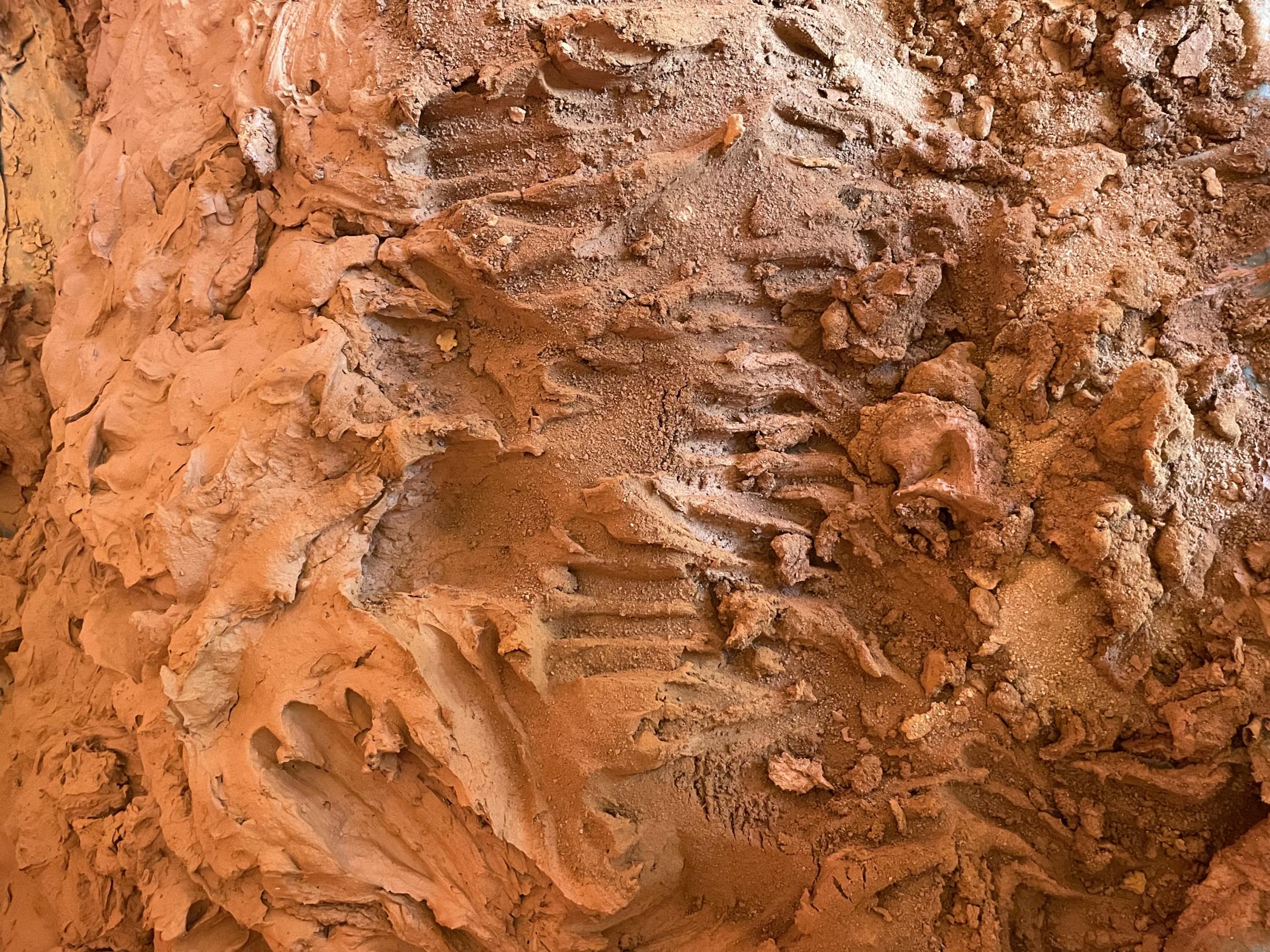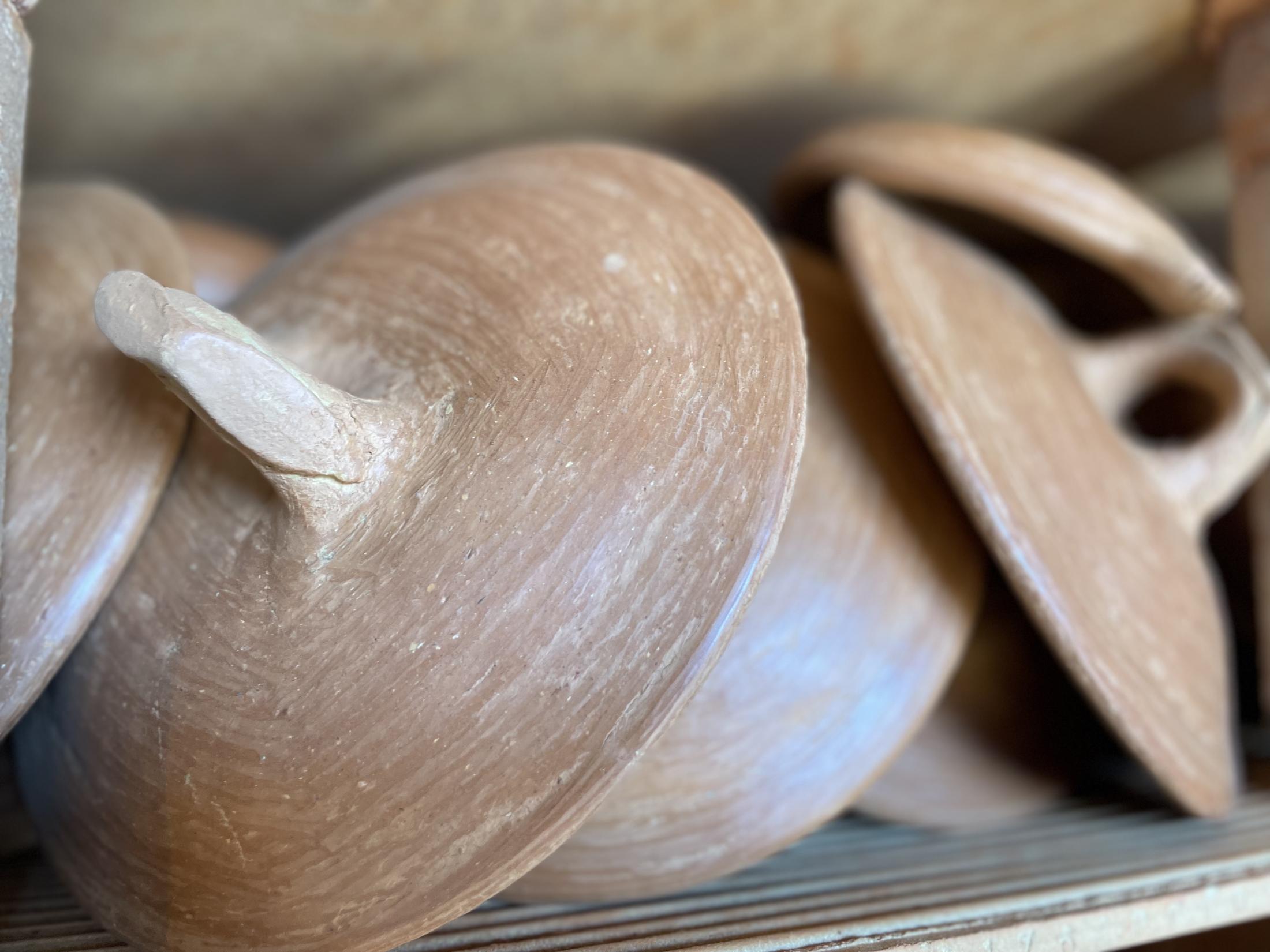Arts & Crafts, aujourd'hui | Erasmus +
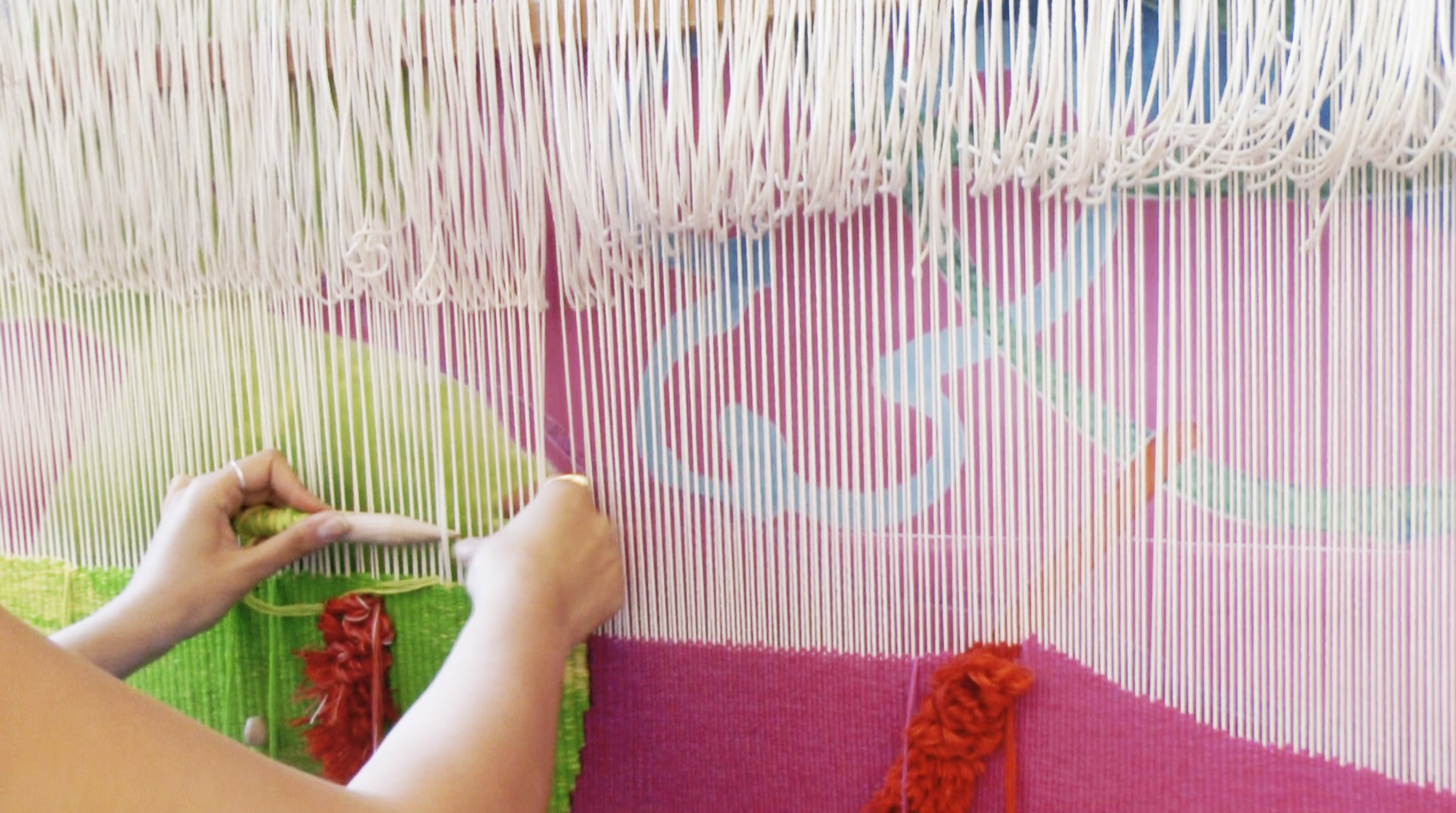
In 2021, the European Erasmus+ Programme granted substantial funding under the "Cooperation Partnerships" action to support an innovative pedagogical and research project lasting three years, from 2021 to 2024. This ambitious project, focused on research-creation, involves collaboration between five renowned partner schools: the Academy of Fine Arts and Design in Bratislava, the National Institute of Fine Arts in Tétouan, the Faculty of Fine Arts at the University of Porto, the School of Art and Design in Saint-Étienne, the University of Quebec in Montreal, and the Royal Academy of Fine Arts in Brussels, Higher School of Arts.
The concept of research-creation was developed and refined during and immediately after the challenging context of the Covid-19 pandemic. A grant of €399,838 was awarded to develop this project, engaging administrative and pedagogical teams (artists, technicians, and theorists), as well as students and networks from the partner institutions, over three years.
The central objective of these cooperation partnerships was, in addition to developing partnerships and pedagogical exchanges, to enhance our ability to work together transnationally, transferring skills and knowledge between us to reflect on and renew the connections between "art & craft."
This project thus stimulated the internationalization of our practices, while reflecting on the exchange of new ideas and methods from the perspective of the "pedagogical bifurcation" aspect. This aspect aimed to consider and experiment with innovative pedagogical practices in a sustainable perspective.
The aim of these projects and partnerships was to support the design, transfer, and use of innovative practices, whether they be practical, artistic, technical, or theoretical skills, within the specific context of schools and faculties dedicated to arts education. Topics such as sustainability in transmission, the exchange between artistic and so-called "craft" practices, and the specific approach to these issues by each partner, considering their unique context, helped to explore and question these issues, considering how to share, configure, or reconfigure knowledge in a more daring way.
Research teams, composed of artists, researchers, and experts in human and social sciences, facilitated interdisciplinary projects/meetings/collaborations. This diversity allowed for enriching exchanges and the emergence of new ideas and practices both locally and transnationally, strengthening the role of art schools/faculties as nodal points and a reservoir of potentialities and resources in terms of innovation and the ability to forge fruitful links with the semi-industrial or artisanal sector.
The artistic creation resulting from these interactions proved to be a powerful force for exploring concepts and practices, allowing for in-depth reflection. In addition to the exchange of knowledge and know-how that fueled the project, three deliverables (alphabet books, platform, web-to-print) were created. These deliverables not only documented our research but also aimed to facilitate the transfer of skills and methodologies, particularly pedagogical ones. Their implementation was, of course, an opportunity to experiment with documentation methodologies and collaborative work, given the diverse institutional cultures and local contexts, and to enable their transfer.
The research project results were also shared within the partner schools and during conferences, exhibitions, and project proposals. This enabled a more comprehensive mapping of the competencies and knowledge of the partners, encouraged exchange, and sparked future discussions and collaborations.
We hope that the results of the research-creation will directly influence pedagogical programs and that the new practices and methods developed will be integrated into teaching, thus fostering enriched and contemporary training while reinforcing the need to develop practices that are enriched by the diversity of contexts, sustainable, innovative, and virtuous.
The idea for the project arose within the working group on a research programme set up between 2015 and 2018, entitled "French Theories", which brought together the Ecole Supérieure d'art et design de St.Etienne (Esadse), the Université de Québec à Montreal, Ecole des arts visuels et Médiatiques (UQAM) and the ArBA-EsA. Thanks to the work initiated, the interest of an international project was identified, reconnecting theory and practice and exploring the possibilities of artistic research through practice.
"Today we are seeing a reappraisal of materiality in art and design, among professional artists and within our student community. What's more, among artists and designers there's a need to reassert the value of local know-how and to establish a dialogue with practices based on traditional or completely new crafts (digital crafts). At the same time, there is a search for production methods that are more respectful of the environment, in a post-industrial age. There is a desire to rethink our relationship with objects in the age of the Anthropocene.
This reality calls for new training methods in art and design. While art and design schools have many assets to help them meet these objectives, notably their technical workshops, these new training and professionalisation requirements mark a real departure from the vision of the artist or designer as a solitary creator, far removed from technical skills, a pedagogical vision that must now be completely transformed. This pedagogical transformation is essentially based on taking practice into account as a method of learning and research. While practice is still generally seen as the execution of projects conceived beforehand in design, and the studio and the office seen as quite distinct spaces, the aim here is to draw out the theoretical issues from the gestures, tools and procedures, in other words to reconcile the hand and the brain, a production that will be simultaneously theoretical and plastic. "
The project aims to adapt art and design teaching to the realities and changes of today's creative industry by developing training experiences based on action research, linking art and design schools with production sites and craft techniques.
What's more, the international dimension is part and parcel of a creative ecosystem that is networked on a global scale. Whether in terms of markets, symbolic recognition, intellectual emulation or the circulation of cultural forms and influences, even the most dynamic metropolises can no longer think of themselves as centralised centres of creativity.
Académie royale des Beaux-Arts de Bruxelles (ArBA-EsA)
Academy of Fine Arts and design Bratislava
Institut National des beaux Arts Tétouan
Université de Porto : faculté des Beaux-Arts
Ecole Supérieure d’art et design de St.Etienne
Université de Québec à Montreal, Ecole des arts visuels et Médiatiques
Cooperation around the Arts and Crafts theme is working on the development of innovative educational tools and pathways to enable :
- Equip students with the skills to work with craftspeople and production sites, enabling them to come to terms with the realities of the professional world.
- Analysing and using craft practices in a variety of cultural contexts, with traditional forms and skills or new forms linked to digital crafts.
- To explore the special position of the artist as an agent of change, who places himself at the centre of societal issues, decompartmentalising and democratising art and design.
- Look for new production methods that meet ecological challenges (waste management, minimising waste, resource management, reorganising production methods).
Encouraging innovation and a transformation in the way we look at things and the way we use them, through collaboration between craftspeople, designers and artists.
Activities - International workshops
31.01 — 04.02.2022 | Regional Craft and its Use in Contemporary Design and Art
Organized by the Faculty of Fine Arts of Porto (Universidade do Porto, Portugal)
09.05 — 14.05.2022 | Grand Workshop: Women’s Pottery in Northern Morocco
Organized by the National Institute of Fine Arts of Tétouan (INBA, Morocco)
22.05 — 27.05.2023 | Summer School: Materiality of Commitments \ Giving Body to Research
Organized by the University of Quebec at Montreal (UQÀM, Canada)
23.10 — 27.10.2023 | RONA Glass Factory
Organized by the Academy of Fine Arts and Design of Bratislava (VSVU, Slovakia)
12.12.2023 | Dissemination - Presentation of the Arts & Crafts Project, today as part of the meeting with ANdÉA
29.01 — 02.02.2024 | Nomadic Workshop: Lithography in Situ (Timetable for the week) (Universidade do Porto, Portugal)
Report on the Nomadic Workshop in Porto at this link: https://www.youtube.com/watch?v=DI1NRzeYcQw
30.01.2024 | Presentation of a New Tool: The Collaborative Digital Platform Arts & Crafts Today
18.03 — 22.03.2024 | Arts & Crafts, Today
Organized by the Royal Academy of Fine Arts of Brussels - Higher School of Arts
25.03 — 29.03.2024 | Materials Procedure Week
Organized by the Higher School of Art and Design of Saint-Étienne
07.09 — 15.10.2024 | Contextile Biennale
27.02.25 | Launch of Web-to-Print
Organized by the Royal Academy of Fine Arts of Brussels - Higher School of Arts
▶︎ Abécédaire Arts & Crafts : for a new way of creating and inhabiting the world
▶︎ Web-to-Print : Bifurcations pédagogiques : méthodologie de la recherche-création
▶︎ Collaborative digital space and virtual exhibition Arts & Crafts Aujourd'hui
Discover the web-to-print space of the Arts & Crafts project, today.
The six partner schools and university faculties dedicated three years to conducting research under the concept of "pedagogical bifurcations." During this time, we shared our skills and knowledge, reflected upon, and implemented educational approaches and collaboration spaces to explore new emancipatory paths for teaching and learning knowledge and "crafts."
Rooted in existing contexts and attentive to them, we aimed to open spaces for exchange, synergies, and collaboration that would foster the emergence of new forms of transmission and fertile spaces for sustainable sharing. This took place during intensive weeks, deepening sessions, projects, and reflections carried out both in preparation for and throughout the project.
We also aim to present the potentialities and virtues of these initiatives, although many exchanges and shares remain invisible and, as always, elude codification or reification. Images, texts, videos, knowledge sharing, and podcasts will guide you through this exploration.
The engagement of learners, inclusivity, and challenges related to eco-responsibility were central to our approach. Although this was not set as a premise for the project, we paid particular attention to the concept of "commons," which turned out to be an invisible guiding thread. Indeed, cooperation and collective contribution, attention to common goods, the need for precise exchanges and sharing played a crucial role in the project and the reflection on the virtuous transmission of knowledge, problem-solving, and the creation of resilient spaces. This would pave the way for a deeper exploration.
This edition reflects the abundant and fruitful exchanges that took place. We have invested non-classically in artistic and craft practices. We grounded ourselves in local contexts, recognizing and valuing the collective heritage transmitted by working communities. We attempted to nourish the dynamics at work by practicing and reflecting on them. We constantly emphasized the emergence of new forms of sharing practices and knowledge, as well as the necessary enrichment of the communities that carry them (schools, artists, artisans, professionals, theorists, practitioners). We sought to promote sustainability and the commitment to common resources, equitably preserving the methods of transmitting artistic and craft knowledge and skills essential for future generations.
Discover the results of our research and experiments in an editorial format that mirrors the project: a space for sharing and experimentation that will allow you, throughout the consultation, to create a personalized reading environment, online or on paper. The creation of this edition incorporates the guidelines of the project that accompanied us throughout our sharing of experiences and research: open sharing of knowledge, skills, and experiences, experimentation and innovation, eco-responsibility.
The "Web-to-Print" review consists of three distinct parts: intensifications, sedimentations, and potentialities. More than just a compilation, it is a colorful textual fabric, the result of the collaborations and research conducted by and between the partner schools and faculties. Each section is the result of co-authorship potentially by six institutional hands, a quilt born from many contributions, a fertile ground for emergence. Indeed, the relatively accepted definitions between art and craft—one classically associated with doing, production, and commission, and the other linked to emancipated forms and authorial positions—have long been tested and continuously challenged through meetings and projects. This "no-zone" of clearly defined territories turned out to be a space for exchange and open research.
By focusing on the question of craft, classical definitions collided even more with the future needs and the COVID crisis we had just experienced. Facing the need to think of forms of resilience, to go beyond the opposition between art and craft, while being aware of the forces and different forms that traverse them, the terms " & " and " today " emerged as necessary spaces for activation. Reflection and sharing proved to be less about production and more about the development of resilient and virtuous creative ecosystems, in fact, systems of life, where the transmission of knowledge is also carried out in moments dedicated to doing, where reflection accompanies practices. The question of commission or emergence is no longer opposed but juxtaposed. The de-hierarchization and sharing of knowledge have proven more than ever to be at the heart of transmission issues.
WEB-TO-PRINT
The graphic design of the web-to-print was created by Marine and Mathilde Klug, and the web development by Vivien Kaufinger.
Arts & Crafts, aujourd'hui à Bruxelles
Festival A&Ca
We had the pleasure of organizing the Arts & Crafts, today week at the Royal Academy of Fine Arts — Higher School of Arts, from March 18 to 23, 2024. This event took on a much larger dimension than just an academic meeting.
It embodied a "holistic" and ambitious approach, shaped by our commitment to issues of knowledge transmission within the Higher Schools of Arts, international collaboration, and the importance of engaging with the transformations of our time through the specific lens of craftsmanship, artisan skills, and techniques. Since its inception, the Arts & Crafts, today project has set out to become a platform for exchange and sharing between different art schools. This somewhat Herculean adventure led us to welcome representatives from five partner schools: the Academy of Fine Arts and Design in Bratislava; the National Institute of Fine Arts in Tétouan; the University of Porto: Faculty of Arts; the Higher School of Art and Design of Saint-Étienne; and the School of Visual and Media Arts at the University of Quebec in Montreal.
A Festival Week
As part of the A&Ca project, ArBA-EsA carefully developed a flexible program, placing student participation at the heart of the project to explore new paths. We invited people to fully experience a joyful and experimental festival week, hoping it would be rich in practices and reflections. The program included workshops, discussion panels, exhibitions, collective art projects, conferences, radio activities, film screenings, and social moments. This week was aimed at our guests and the entire Academy community, offering an opportunity to discover the school in a new light, breaking down boundaries, and meeting the diversity of practices and proposals.
Reflection and Sharing Framework: Arts & Crafts through the Lens of Pedagogical Bifurcations
The Arts and Crafts movement, embodied by its leading figure, W. Morris, views the learning of manual skills and "crafts" as an emancipatory power. Pedagogy and education thus become a vector for the emancipation of individuals – an empowerment – a process by which an individual, community, association, etc., takes control of the events that concern them. "Pedagogical bifurcations" refer to a concept derived from complex systems theory. This concept is inspired by the idea that systems, including educational systems, can undergo moments of transformation, change of direction, or divergence, known as "bifurcations." In the pedagogical context, bifurcations represent moments when pedagogical practices seek to combine emancipation and engagement, where new ideas emerge and new paths are explored to improve learning and teaching.
-> To discover the full program of the week, click here (go to page 19)
Project Coordinators at ArBA-EsA
Daphné de Hemptinne, Vincenzo Pezzella, Alice Finichiu, Clémence Detroy, Daphné Tellier, and Dana Trama.
